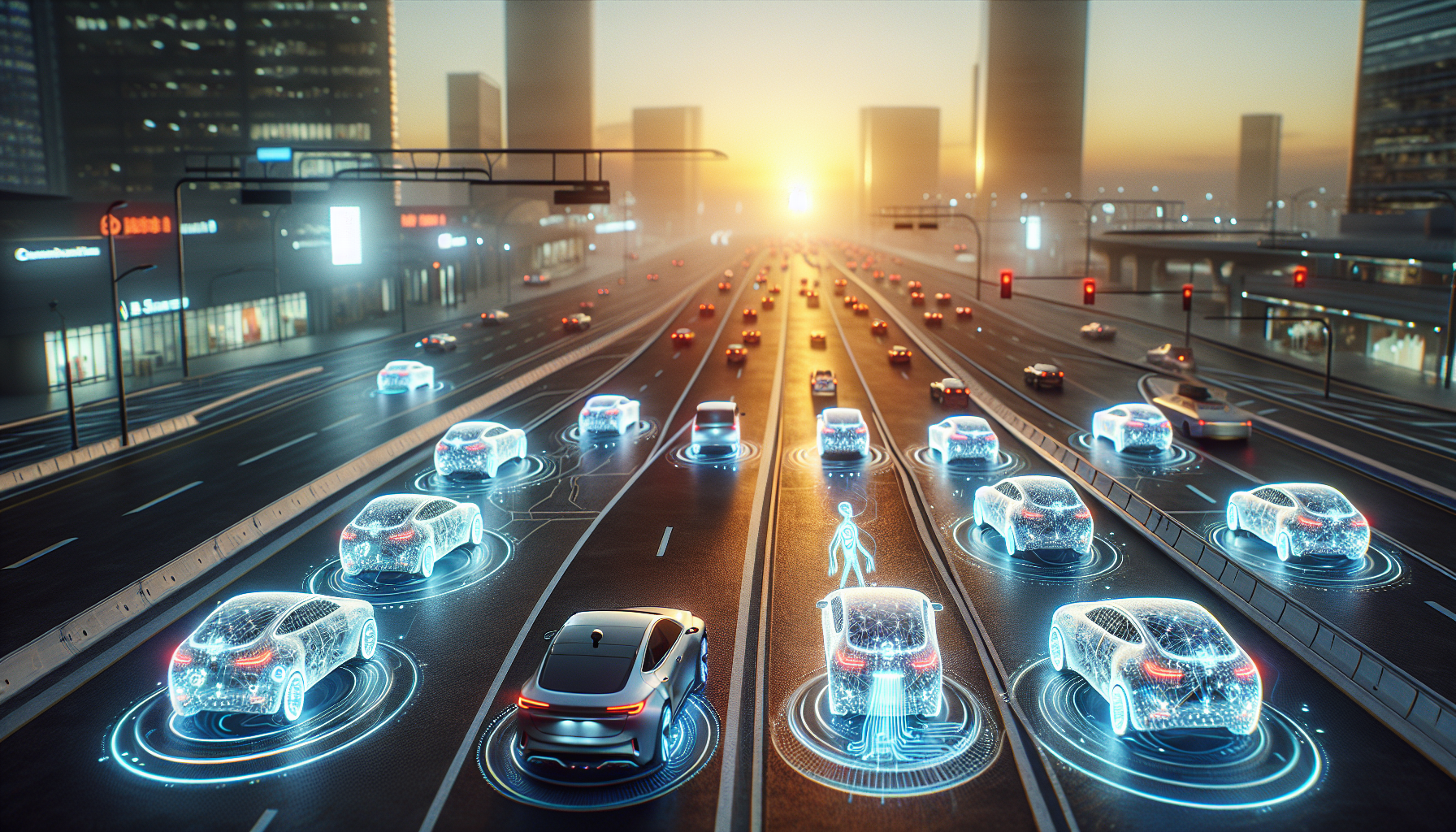Future of Autonomous Vehicles: Impact on Our Lives
The Future of Autonomous Vehicles: How They Will Change Our Lives As autonomous vehicles develop at a rapid pace, they are poised to revolutionize transportation and reshape daily living. This article explores the implications of driverless
The Future of Autonomous Vehicles: How They Will Change Our Lives
As autonomous vehicles develop at a rapid pace, they are poised to revolutionize transportation and reshape daily living. This article explores the implications of driverless technology on society, economy, and the environment.

Technological Advancement in Autonomous Vehicles
Autonomous vehicles (AVs) are increasingly abandoning traditional driving methods, thanks to advancements in artificial intelligence (AI) and machine learning. These technologies enable cars to navigate and make decisions in real-time, leading to safer and more efficient driving experiences. The shift towards autonomy marks a significant milestone in the auto industry, with major manufacturers integrating advanced AI systems into their designs.
Economic Implications
The rise of driverless cars is likely to create significant economic shifts. Here are some potential changes:
- Job Transformation: While AVs could displace certain driving jobs, they also pave the way for new roles in tech, maintenance, and operations.
- Cost Reduction for Businesses: Companies relying on transportation may experience reduced costs due to lower insurance premiums and decreased accident-related expenses.
- Emergence of New Industries: Innovations in autonomous technology could spur new industries, such as software development for vehicle systems and cybersecurity.
Social Changes and Lifestyle Adjustments
Beyond economic impacts, AVs are set to alter social dynamics and daily routines:
- Increased Mobility: Autonomous vehicles promise to provide transportation solutions for individuals unable to drive, such as the elderly or disabled.
- Time Reallocation: Passengers can utilize their travel time for work, leisure, or other activities, changing the way we view and use time spent on the road.
- Enhanced Connectivity: AVs may improve public transportation systems, promoting greater accessibility and connectivity among urban and rural areas.
Environmental Considerations
With sustainability being a major concern, autonomous vehicles could offer solutions to environmental challenges:
- Reduction in Emissions: Many AVs are designed to be electric, contributing to lower greenhouse gas emissions compared to traditional fuel vehicles.
- Traffic Efficiency: Improved traffic flow through AI-driven navigation can lead to fewer congestion-related emissions, enhancing overall air quality.
- Mobility-as-a-Service (MaaS): The concept of shared AVs can promote public transportation and reduce the number of vehicles on the road.
Safety Improvements and Traffic Regulation
One of the primary motivations for the development of autonomous vehicles is safety:
- Accident Reduction: The implementation of AVs is expected to significantly lower accident rates, as human errors contribute to over 90% of traffic incidents.
- Smart Traffic Management: AI can help manage traffic signals and patterns, streamlining the flow of vehicles and potentially preventing gridlock.
- Risk Assessment: With real-time data analysis, AVs can assess and react to road conditions, contributing to safer driving environments.
Regulatory Challenges Ahead
Despite the potential benefits, the integration of autonomous vehicles faces several hurdles:
- Legislation: Governments worldwide are still developing regulations to govern the testing and deployment of AVs, which can create uncertainty for manufacturers.
- Insurance Models: As liability shifts from driver to manufacturer, insurance companies must adapt to the new landscape of accountability.
- Public Acceptance: Education and exposure are crucial for gaining public trust in AV technology, which may be slow to develop in some demographics.
Looking Ahead: The Road to 2026 and Beyond
As we approach 2026, where fully operable driverless taxis are expected to hit the streets, stakeholders must prepare for the impending changes. Businesses, consumers, and policymakers need to engage in discussions around the impact of AVs to effectively navigate this transformation.
Consumers can anticipate enhancements in their overall ownership experience, while businesses must consider how to adapt to the new marketplace and technological advancements. Policymakers are called to craft frameworks that ensure safety, foster innovation, and protect public interests.
Conclusion
The future of autonomous vehicles holds tremendous promise, transforming how we live, work, and interact. While challenges remain, the next few years will be pivotal in shaping the landscape of transportation, ultimately redefining our mobility experiences.
Related video
Watch: The Future of Autonomous Vehicles
Related videos: